Reporter: Your Excellency, you have recently said that Russia expects from the new government an improvement in the Russian-Romanian relations, which are currently very cold. What would help the relations between Romania and Russia develop, especially on the economic side? What is the status of the Russian-Romanian economic forum, which will take place this spring?
Valeri Kuzmin: The Russian Federation is proposing to Romania to expand on a purely pragmatic basis the mutually advantageous economic and commercial cooperation, which has considerably decreased in the last three years, even though in 2016, the turnover of commercial exchanges between our two countries has stabilized itself at USD 3 billion. In that regard, we expect the new Romanian government to support our suggestion, starting with the appointment of a new co-chairman of the Intergovernmental Commission for economic and technical-scientific cooperation (the Russian government is also in the process of selecting the candidate for the position of co-president).
From a practical point of view, I think it would be very useful to organize a relevant Russian-Romanian business forum, to provide the businesspeople in the two countries with the opportunity to reevaluate, given the new realities of the international situation, the possibility of cooperation and expansion of trade, investments and common projects. Currently, the Romanian embassy is working on organizing such a forum this spring, in the building of the Chamber of Commerce and Industry of Moscow.
We are also taking into consideration, first of all, the high level of interest that the Romanian business sector has expressed in having contacts with the Russian partners.
We have received that kind of requests from various Romanian counties, from the Union of Romanian Chambers of Commerce, from the representatives of other business sectors.
As for the "coldness" in our relationship, even now, in January, I can safely say that after winter comes spring and then summer. It will all depend on the existence of political will and on the willingness to build an equitable dialogue and the mutual consideration given to legitimate interests.
Reporter: How is the Russian embassy getting involved in promoting Russian investors in Romania? Did you have talks with Romanian businesspeople? Russian companies have reached a share of 25% of the Romanian market for natural gas, compared to just 5% in January 2016, due to the low price that Russian natural gas is being imported at. Moreover, Romania has acquired from Gazprom a volume of 1.48 billion cubic meters of natural gas, up 740% compared to 2015. Even as some of the Romanian authorities support the idea of reducing reliance on Russian natural gas, natural gas imports from Russia are rising. What is your comment on that state of things?
Can Europe ever be energy-independent from Russia, when, in 2015, after the annexation of Crimea, the EU was announcing that it had a plan to eliminate dependence on Russian gas, and after that, imports are now rising?
Valeri Kuzmin: Support for Russian investors in Romania, is of course, part of the priorities of our embassy's economic activity. International Russian companies that are state- or privately-owned such as "Lukoil", "Gazprom", "Compania Metalurgică de Ţevi", (ed. note: the metallurgical pipe company) and others have already been operating on the Romanian market for years, and have become known as serious taxpayers. We hope that in their activity in Romania - in full compliance with the legislation and standards of the European Union - they won't see artificial walls erected before them.
The best invalidation of the "perfidy" of the thesis of some alleged energy dependence of the EU and especially of Romania, on deliveries of natural gas by Russia, is the situation of this harsh winter. The increased consumption of natural Russian gas by the Romanian population and industry is dictated by obvious phenomena of the market economy and particularly by the lower prices of Russian gas, meaning the acquisition of natural gas from Russia has become more economically advantageous for Romania. The mutual commercial exchanges in particular, given the geographical proximity and the economic relations that have been established in Europe, are making the European Union and Russia interdependent. In my opinion, there is no reason to fear for that, nu especially since Russia never gave any reason to be concerned over the certainty of its delivery of energy carriers.
As for the reunification of Crimea with Russia, this took place based on nations' right to self-determination under international law, consecrated by the UN Charter, and by the results of the democratic referendum of the inhabitants of the peninsula. The fact that in the European Union, this event has been used as a pretense for declaring politicized economic sanctions against Russia, is the Europeans' problem which they will have to resolve themselves, apparently. As far as I know, in the countries of the European Union there is an increased level of awareness that sanctions and threats can't influence Russia's position, and the losses because of those measures are borne by the European economy itself.
Reporter: What is your opinion of NATO placing weapons in Eastern Europe, including in Romania? Former CIA director, Michael Morell, said that Russia's president will try to obtain a new agreement with the Donald Trump Administration by which the NATO missile shields in Romania and Poland will be blocked. How do you think the American policy on the missile shield is going to change after Trump enters the White House?
Valeri Kuzmin: Made based on the decision of the Obama administration, prior to the departure, the placing of a significant number of American troops on the Russian borders is only in line with the interests of the US military-industrial complex, which expects its lion's share of the 2% of the GDP of NATO countries, as well as the interests of NATO strategists, who are still thinking in "Cold War" terms. Russia firmly rejects the logic of confrontation, as mentioned in the new edition of the Concept of Foreign Policy, approved by president Vladimir Putin on November 28th, 2016. In his recent speech in the Russian parliament, he stressed the fact that, "unlike some of our foreign colleagues, who see Russia as an enemy, we are not looking for .... enemies. We need friends. But we won't allow a violation of our interests... We will forge our own destiny and we will build our own future without ... unsolicited advice".
NATO's expansion towards the Russian borders didn't just start recently, but ten years ago. These military preparations, including the placement of elements of the American global missile shield on ships of the US Military Navy, moved into the Mediterranean Sea, the Baltic Sea, the Black Sea and other seas, as well as in Romania, and in the near future in Poland, undoubtedly violates the balance of our country's strategic nuclear security. Naturally, Russia can't look upon all this indifferently. Still, we do not intend to be drawn into a new arms race, the countermeasures taken against us are limited in nature and are made exclusively within national borders, without endangering European security, much less that of the world.
With the appointment of US president Donald Trump, we do not expect miraculous changes in the geostrategic areas. Still, a number of statements made by the new American commander-in-chief allow us to expect that the almost paranoid ideologizing of the anti-Russian policy will be abandoned, in favor of pragmatic deals, based on mutual respect, concerning the cooperation in resolving some of mankind's problems that are truly global and real, such as the response to international terrorism, the resolution of some "hot" regional conflicts, especially in the Middle East, the fight against cross-border criminality, of drug, human, weapons and organs trafficking, etc. I think that in all these areas there are opportunities for a constructive cooperation between Russia and the United States, as well as with the European Union, including with Romania. In relation to that, I could just add the fact that the "rumors" about Russia's interest in the weakening and even the disintegration of the EU, are "highly exaggerated", like American humorist Mark Twain wrote in the 19th century. Moscow has repeatedly expressed its willingness to develop relations with a united and prosperous Europe.
Reporter: Given that almost 100 have passed since the Great Union of 1918, and some Romanian politicians have expressed their closeness to the Republic of Moldova, do you think that a potential union between Moldova and Romania in the coming years is possible?
Valeri Kuzmin: The prospects, in general, and even more so, an eventual date of "potential union" between Romania and Moldova could only be determined through the free will of the peoples of the two countries.
Reporter: Have you recouped the money you donated for "The Wisdom of the Earth"? If yes, what did you do with it?
Valeri Kuzmin: Of course, we don't intend to request the refund of the modest contribution the Embassy made to the fund for buying back the "Wisdom of the Earth" sculpture. I think that the entire amount raised, including other donations received by the Embassy from Romanian citizens for the aforementioned fund, which have exceeded multiple times the amount we initially contributed, will be used in a useful manner by the Ministry of Culture in Romania. In connection to that, we intend to notify the Romanian authorities in an official manner.
Reporter: Thank you!

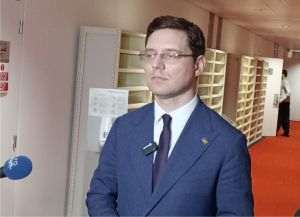
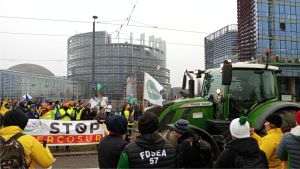
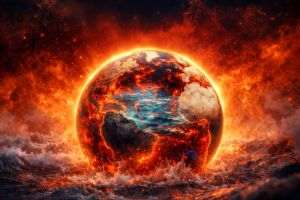

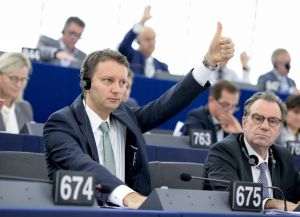
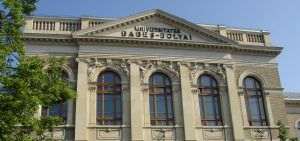
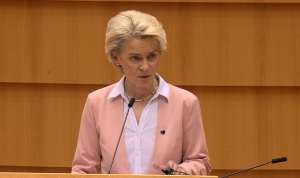

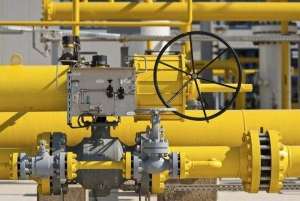

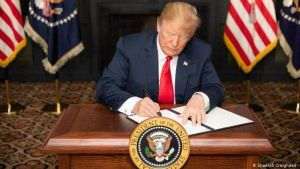

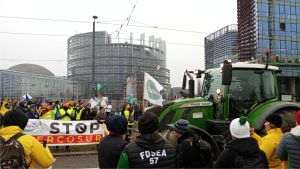




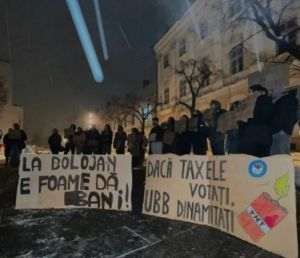






















1. LOL
(message sent by kint verbal on 14.02.2017, 10:37)
LOL What arms race? Russia can barely afford food... and with cheap oil and, in 20 years, unnecessary oil, they are going down the drain as fast as a flushed turd!